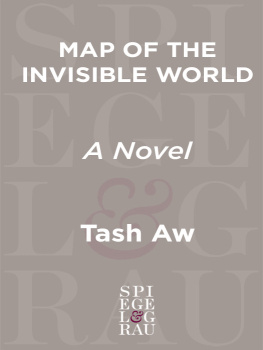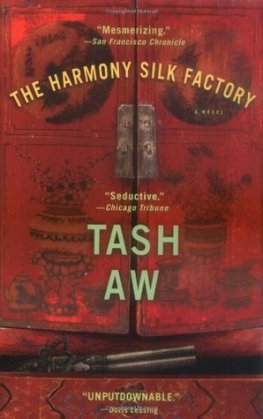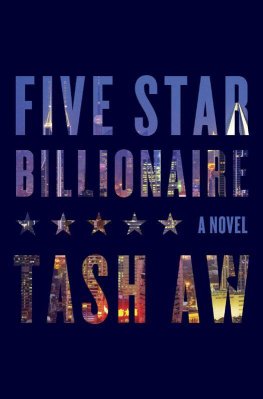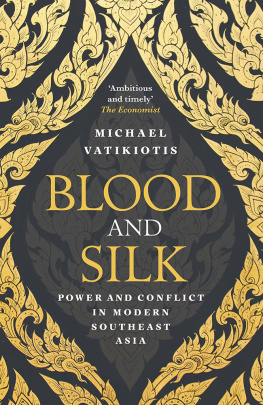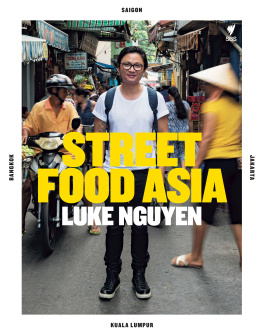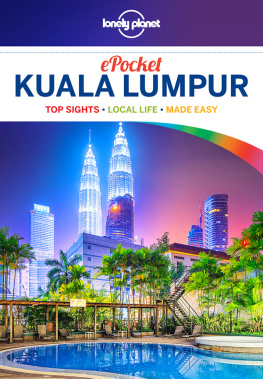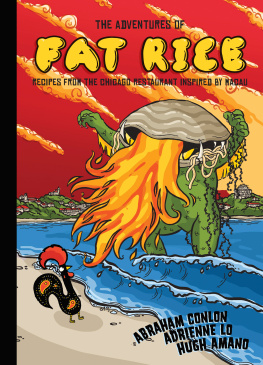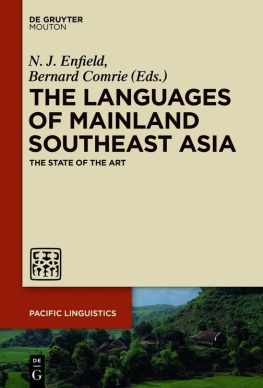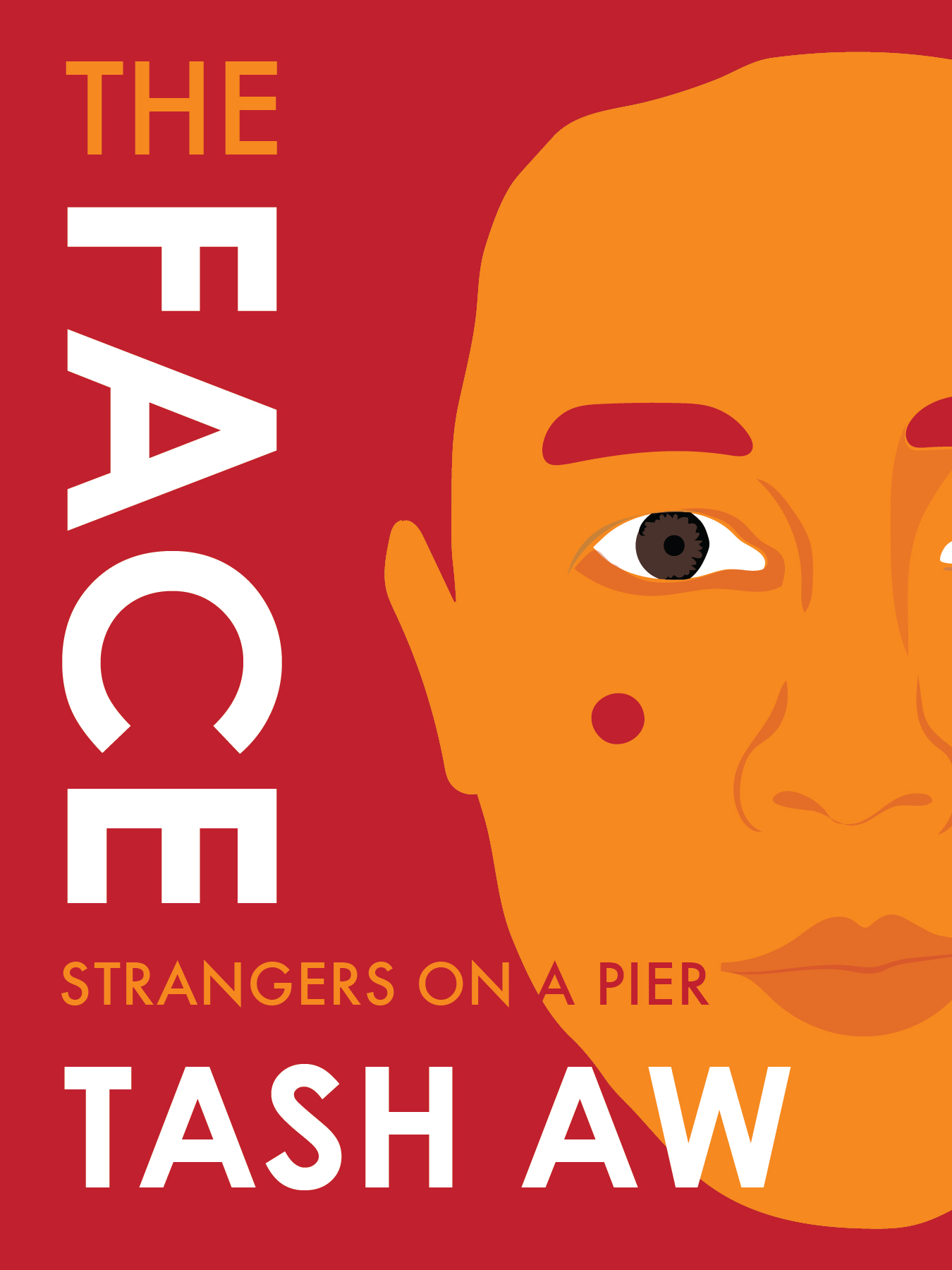The Face: Strangers on a Pier
Tash Aw
Restless Books | Brooklyn, NY

Pom mai ben Thai. Watashi no nihonjinde wanaidesu. Jaesonghaeyo, han-guk saram ahniaeyo. Bukan orang Indonesia. Ma Nepali ta hoina.
Ways to say what we are not, and to begin the story of what we are.
I am in a taxi in Bangkok. My companionEuropean, whitespeaks fluent Thai, but every time he says something the taxi driver turns to me with the reply. I shake my head. Pom mai ben Thai . Im not Thai. Not Thai . He continues to address me, not my friend. I am the passive conduit for this strange tripartite conversation.
I am in Nepal, in the hills west of Pokhara. A village schoolteacher insists that I am a Gurung, an ethnic group of sheep herders and soldiers. Im from Malaysia, I demur. You sure? Maybe your father was a Gurkha soldier who fought against the Malayan communists. Later, I stare at my face in a mirror for the first time in a week: my cheeks are rosy and sunburned from long days trekking at altitude, my eyes narrowed against the brilliant light. In my eyes, I look like a foreigneror rather, like a local. Maybe I am a Gurung.
I am boarding a Cathay Pacific flight from Shanghai to Hong Kong. The Mainland Chinese attendants at the boarding gate bid me goodbye in Mandarin but twenty yards further on, the Hong Kong Chinese air crew waiting at the door greets me in Cantonese. (Most of the other ethnic Chinese passengers do not get this bifurcated treatment, I notice.)
It has to do with my face. My features are neutral, unpronounced, my skin tone changeablepale in sunless, northern climates but tanning swiftly within a day or two of arriving in the tropics. My face blends into the cultural landscape of Asia: East of India, my identity becomes malleable, molding itself to fit in with the people around me. Sometimes, I wonder if I aid this process unconsciously by adjusting my movements and behavior to blend inat a literary festival in Tokyo last year I realized that I was nodding respectfully as someone gave me directions in the street, when in fact I didnt understand a single word they said. I wonder if, on some level, I enjoy being mistaken for a local as much as I am frustrated that no one seems to know, or care, where Im from. In some countries, like Thailand, where I can string a few basic sentences together, I find myself mimicking the local accent, which further confuses people. But it makes them happy, too. Same-same like Thai people, they respond cheerily when my identity is finally revealed. They draw their index finger around their face: my face is their face.
Same-same like me. Maybe it isnt to do with our faces, but with our wish for everyone to be like us. We want the stranger to be one of our own, someone we can understand.
Both my grandfathers lived on the banks of wide, muddy rivers deep in the Malaysian countryside, one on either side of the thickly forested mountain range that divides the country in two. One was a shopkeeper, the other a village schoolteacher. One lived in Perak, in a small town called Parit, not far from Batu Gajah, in turn not far from Ipoh, the state capital; the other had a more peripatetic existence, moving from a series of remote jungle townsTumpat, Temanganbefore settling in Kuala Krai, in the heart of the Islamic state of Kelantan on the remote north eastern coast of Malaysia. One was Hokkien, a min-nan hua speaker from Fujian Province, the other from Hainan island, the southernmost territory of China, almost halfway down the coast of Vietnam and a mere few days by boat across the South China Sea to Malaysia.
(A quick aside: Hokkien, Hainanese ; to these, add Cantonese, Hakka, Teochew . The differing regional roots of Chinese immigrants in South East Asia. Keep them in mind; theyre important to this story.)
Both my grandfathers had, at some point in the 1920s, made the hazardous boat trip from Southern China to the Malay Peninsula. They were mere teenagers when they made the voyage, fleeing a China ravaged by famine and fragmenting into civil war. I doubt their families would have known much about Chinas political confusion during the Warlord era. They might have known that the Qing dynasty had recently come to an end, that they no longer had an emperor. But they would have not have understood what it meant to live in the fresh ruins of a thousand years of Imperial rule, would not have understood the intricacies of the increasingly bitter conflict between Chiang Kai-Sheks nationalist Kuomintang and the swelling power of the Communist Party. They did not know they were living in momentous times, an era to end all eras, the beginning of a novel whose middle chapters we are only just approaching today. Theirs was a time that would set China on a course to dominate the worlds imagination a hundred years later; but they would never see their country become the worlds factory, the worlds largest consumer of luxury goods, the worlds second largest economy, respectful only of the might of the United States. In those few years, contemplating adulthood, they wanted only to escape crushing poverty.
And in those times the routes to salvation led, almost inevitably, to the warm, fertile lands that lay spread out across a vast archipelago south of China, where the Chinese emperors had established a centuries-old network of trading routes and an ancient relationship based on vassal and tributary states, with the ports of Singapore and Malacca at its epicenter. This was a place of promise, known to the Chinese as Nanyang , the Southern Oceans.
Sometimes, when I arrive in New York or Shanghaiold harbour cities that have drawn generations of immigrantsI find myself reimagining my grandfathers arrival at the docks in Singapore, an unknown place whose sights and sounds must have been inexplicably comforting nonetheless. The temperature: hot and humid, exactly the same as the long summers of their homelands. There will be no cool season here, no brief respite from the heat and the rain, but they do not know this yet. The landscape: broad-leafed evergreen trees and waterways, the proximity of the sea. Again, much like home. The smell: of wet earth and rotting vegetation; of food, of possibility. But above all, it is the people who make them feel that they can live here. This is a British colony but it is a city of free trade, then as is now. Foreigners arrive easily, they find work easily; they stay. Built on eighty years of Chinese immigration since the establishment of British administration and the development of natural resources by the colonial government, Singapore is full of Chineselaborers, dockside coolies, descendants of indentured workers in Malayan tin mines and plantations, but also merchants and tradesman, artists, writers. There are Chinese newspapers, Chinese shops with Chinese signs painted in elegant traditional characters, Chinese schools, even a Chinese bankthe Overseas Chinese Bank. My grandfathers are not alone, and in fact; they are several generations away from being pioneers.
From here they seek out the person whose name and address they have been given. They keep it on a piece of paper, their dearest possession. All the other people on the boat have a similar piece of paper bearing the name of a relative, or maybe a person from their village who has left some time in the past and established a home somewhere in Nanyang. But where to go, how to find these contacts? No one is sure of the geography of this foreign-but-familiar place yet; no one knows how far Kota Baru is from Singapore, or whether Jakarta is closer to Malacca than Penang. Bangkok is somewhere north of here, but how far? They stand by the docks, figuring out where to go next.


